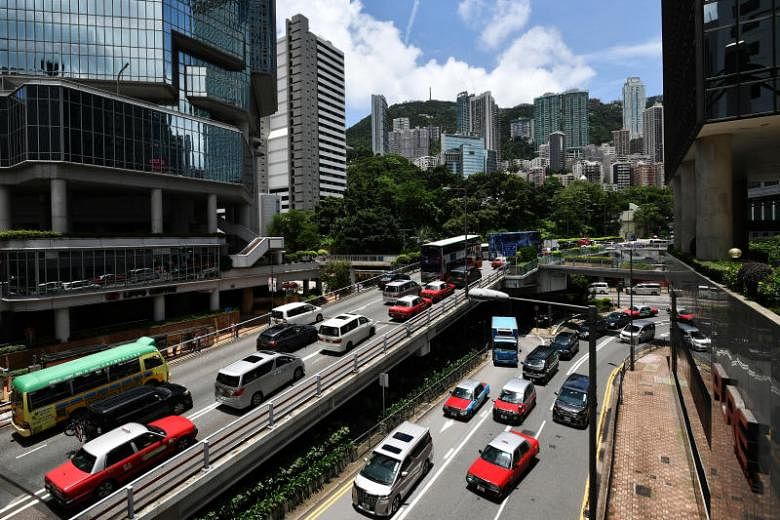HONG KONG • Hong Kong's government yesterday unveiled HK$19.1 billion (S$3.38 billion) worth of economic relief measures and downgraded its growth forecast as the international hub reels from simmering pro-democracy protests and the US-China trade war.
Last week, city leader Carrie Lam warned that 10 weeks of anti-government protests were hitting businesses like a "tsunami".
Yesterday, financial chief Paul Chan predicted that the city's economy would grow by a miserly 0 per cent to 1 per cent this year, the worst rate since 2009 after the global crash hit.
But as he announced a raft of sweeteners in a surprise "mini-budget", he denied that the move was linked to the roiling unrest.
"The measures that we have just announced... trying to tackle the current economic difficulties and the coming economic headwinds, are not related to the political difficulties that we are facing," Mr Chan told reporters.
Instead, he said, the primary headwinds remained ongoing trade tensions between Washington and Beijing - two major markets for Hong Kong - and the possible impact of Britain's exit from the European Union.
"Based on the latest developments and assessments on the outlook, the Hong Kong economy will continue to face an austere environment for the rest of the year," he said.
Nonetheless, the sweeteners seemed to be aimed at winning over support from moderate Hong Kongers as the city reels from the protests.
The measures included financial breaks for small businesses, more generous student subsidies and goodies for low-income households.
The retail and tourism sectors have been especially hit by the drop in arriving visitors to the city, but the property market remains strong.
The airport, one of the world's busiest, was returning to normal but under tight security after thousands of protesters jammed its halls on Monday and Tuesday nights, part of a protest movement Beijing has likened to terrorism.
At a "citizens press conference" yesterday, one protest group blamed the city's economic woes on the local leaders whom they accused of undermining the city's business appeal by kowtowing to Beijing.
Ten weeks of unprecedented rallies, demonstrations and occupations in Hong Kong have seen millions of people take to the streets in the biggest challenge to China's rule of the semi-autonomous city since its 1997 handover from Britain.
The social and political unrest was triggered by a controversial Bill which would have allowed extraditions to mainland China, but has evolved into a call for wider democratic reforms and a halt to sliding freedoms.
Late on Wednesday night, police and protesters faced off again on the streets of the financial hub, with riot officers quickly firing tear gas. Seventeen people were arrested on Wednesday, bringing the total detained since June to 748, police told a news conference, adding that police stations have been surrounded and attacked 76 times during the crisis.
The city is bracing itself for more mass demonstrations through the weekend, including one on Sunday by the Civil Human Rights Front, which organised million-strong marches in June.
The protesters have five demands, including the complete withdrawal of the extradition Bill.










